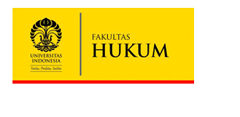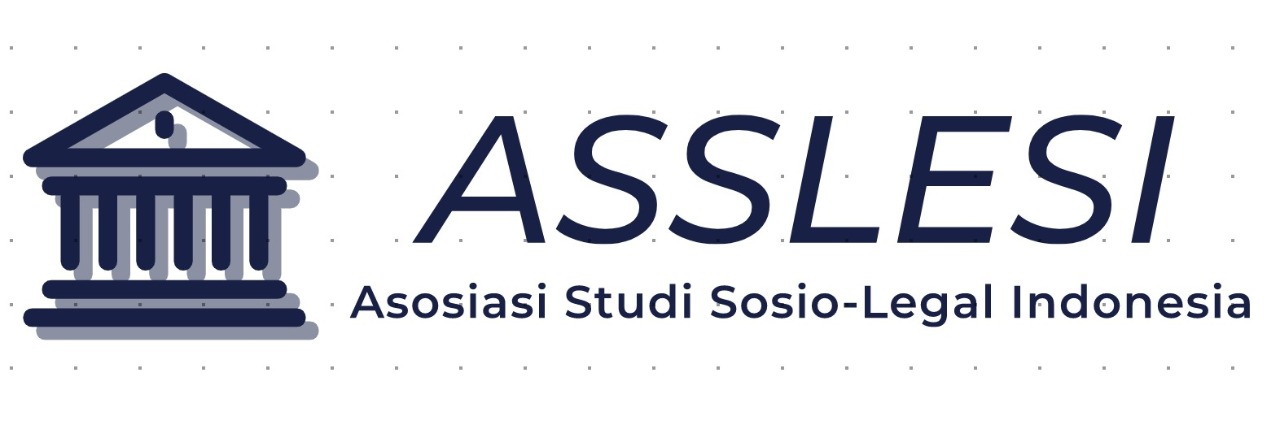Author Guidelines
This document provides details on typesetting and layout requirements pertaining to final manuscript submission to The Indonesian Journal of Socio-Legal Studies.
TEMPLATE FOR SUBMISSION IN THE INDONESIAN JOURNAL OF SOCIO-LEGAL STUDIES
Abstract (English)
In the past years, journals pertaining to law and society relation have gained recognition as important means of publishing and disseminating interdisciplinary studies of law. Each journal has its own characteristic and criteria. Therefore, the following template is set to guide authors through their submission process to the Indonesian Journal of Socio-Legal Studies (IJSLS). The manuscript must contain Article Title, Author's Name, Author’s contact address and affiliation (in the footnote), followed by abstract written in italics of 150 -250 words, both in English and in Bahasa Indonesia. Abstract should be written in one paragraph, a margin of 2.54 cm left with a 10 pt font size and Cambria type with single spacing. Abstract must contain issues which will be raised in the manuscript, the results of research and conclusions. Overall, the abstract must provide the readers with main arguments of the manuscript. Authors who wish to submit their manuscript to the Indonesian Journal of Socio-Legal Studies are required to follow this template.
Keywords: journals, law, template, abstract
Abstrak (Bahasa Indonesia)
Dalam beberapa tahun terakhir, jurnal yang berkaitan dengan hukum dan masyarakat telah banyak diakui sebagai sarana penting untuk mendorong dan menyebarluaskan studi interdisipliner. Setiap jurnal memiliki karakteristik dan kriterianya masing-masing. Untuk itu, template ini dibuat dalam rangka membantu para penulis dalam mengirimkan manuskrip kepada onesian Journal of Socio-Legal Studies (IJSLS). Artikel dimulai dengan penulisan Judul, Nama Pengarang, alamat pengarang yang dapat dihubungi beserta afiliasi pengarang (keterangan ini harus ditulis di catatan kaki). Diikuti dengan abstrak yang ditulis miring (italic), terdiri dari 150-250 kata, ditulis dalam Bahasa Inggris dan Bahasa Indonesia. Abstrak ditulis dalam satu paragraf, dengan margin kiri 2,54 cm, ukuran huruf 10, tipe Cambria dan satu spasi. Abstrak harus memuat permasalahan yang akan dibahas oleh penulis dalam artikel, hasil penelitian dan kesimpulan. Secara keseluruhan, abstrak harus dapat memberikan gambaran kepada pembaca mengenai garis besar isi artikel. Penulis yang ingin mengirimkan naskahnya kepada The Indonesian Journal of Socio-Legal Studies diwajibkan untuk mengikuti panduan penulisan ini.
Kata kunci: jurnal, hukum, template, abstrak
I. Introduction
Indonesian Journal of Socio-Legal Studies is an initiative of the Bidang Studi Hukum, Masyarakat, dan Pembangunan (Department of Law, Society and Development), Faculty of Law Universitas Indonesia. Its ambition is to become an important reference point for law and society studies on Indonesia. Starting in the year 2008, the department published the bilingual Digest on Law, Society and Development, as a product of the program Alliance Building on Socio-Legal Studies, a cooperation between Leiden Law School and the Law Faculty funded by the Ford Foundation. Since 2008, a total of 11 editions of the Digest have been published. During that time, the form of a digest was chosen so that academic research could be presented in the form of popular science. We believe that the time has come to promote the Digest of Law, Society and Development to become the academic journal of “Indonesian Journal of Socio-Legal Studies”. The scope of The Indonesian Journal of Socio-Legal Studies (IJSLS) comprises the fields of Law and Society or Socio-Legal Studies – that focus on interdisciplinary studies of law. The journal publishes articles that are the results of empirical and interdisciplinary research on legal issues in Indonesia. Submitted papers are subjected to a double-blind peer-review process by international and/or national experts. IJSLS is published twice a year (in March and September) by the Department of Law, Society and Development Universitas Indonesia in collaboration with the Association of Indonesian Socio-Legal Lecturers.
II. Objectives of IJSLS
The objectives of IJSLS are: first, to become a main center of knowledge production for Law and Society Studies in Asia; second, to promote interdisciplinary legal studies; and third, to become an international platform for research cooperation and exchange of ideas between international legal scholars on the interdisciplinary study of law and society. The IJSLS focuses on the following disciplines: Legal Anthropology; Sociology of Law; Law and Politics; Law and Economics; Law and Psychology; Gender and Law; Health, Law and Society; and Law, Social Change, and Technology.
III. Guidelines and Instruction
Manuscripts should be between 5.000 and 8.000 words (excluding abstract, footnotes, and references). Manuscripts can be written in English or Indonesian, and must not have been published previously or being submitted elsewhere.
A. Body Text
The body may be consisted of several paragraphs according to discussion of the articles the author wishes to deliver. The body should be written in Cambria, font size: 12, and double line spacing.
Headings and sub-headings should be numbered by;
1. First level: roman numerals in uppercase (I, II, III, …);
2. Second level: alphabets in uppercase (A, B, C, …);
3. Third level: arabic numerals (1, 2, 3, …);
4. Fourth level: alphabets in lowercase (a, b, c, …);
5. Fifth level: roman numerals in lowercase (i, ii, iii, …).
The first heading should be titled “Introduction” and the last heading should be titled “Conclusion”.
First line of each paragraph should be indented, with single space between paragraphs. For direct quotation less than 20 words, it should be placed within the paragraph with quotation marks (“........”). For direct quotation contain more than 20 words, it should be in a separate paragraph with left indentation of 1,27 cm, justified, in italic and use single line spacing.
Tables should be presented on same sheets of the manuscript and should have short descriptive titles. Figures should be clearly numbered, source and should have explanatory captions. The author must indicate where Tables and Figures should be placed in the text
B. Tables and Figures
Show clearly in the article text where the tables and figures should appear. You are required to send tables and figures as original, editable files in Microsoft Word or Excel. Please give tables and figures separate titles, don't include the titles as the first row of the table. Table notes should also be separate from the titles and included underneath the table to which they apply. The size of each table should not be too large and must fit on a single journal page. Please note that it will be difficult to represent a table with the size of one whole A4 page (210 x 297 mm). In such case, consider splitting the data into two or more tables. Your tables must be consistent in presentation. Please note that colour, shading, vertical rules, and other cell borders that are not compatible with the final layout of the table in the published article will be removed (except at the head and foot of the table). If you are reproducing tables and figures from another source, you must have acquired prior permission to do so.
Submission to IJSLS
The Indonesian Journal of Socio-Legal Studies invites contribution from scholars and practitioners to submit their manuscripts. Authors must submit their manuscript via SCHOLARHUB UI system
Conclusion
Authors are required to follow the author guidelines and submission template when submitting their manuscript to IJSLS. For further inquiries please contact the editorial staffs at ijsls@ui.ac.id.
Bibliography or Reference
For the bibliography and references, we fully use Chicago Manual of Style (Author-Date style). (click here)
Reference Manager Software
Reference Management Software (RMS), is software that helps researchers (or anyone) in managing their reference documents (books, articles, book chapters, etc.). Manage in the sense of: helping search, find, store metadata (title, author, year of publication, publisher...), and find it again if necessary. This also includes managing digital documents from these references.
RMS also helps in communicating with other authors/researchers. In addition, another very useful technical function is that it helps in compiling quotations and bibliography in various styles.
Referencing software commonly used is Mendeley[LINK]
The submission template can be downloaded here


